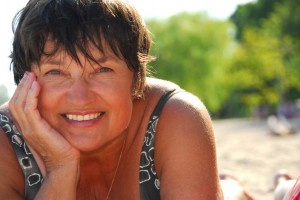By Megrette Fletcher, M.Ed., RD., CDCES co-author of Eat What You Love, Love What You Eat with Diabetes
Recently, a client came to see me and our conversation centered on the concept of ‘Where Do I Invest My Energy?‘ (from chapter 21 of Eat What You Love, Love What You Eat with Diabetes). As we spoke she explained, “All these years, I’ve been so caught up in what I weigh and whether I’ve lost weight. Now, people at work ask me all the time, “Have you lost weight?” At first, I wondered if I had and I was tempted to get on the scale. Then I realized if I did that, I might slip back into a restrictive eating cycle. I never know how to respond so I just said “Thank you.” Yesterday, a co-worker gave me yet another compliment: “You just look great! Are you sure you didn’t lose any weight?” Then it hit me, “Actually I have started to lose all those heavy thoughts I have been carrying around for a few decades! I think that is why I seem so much lighter!”
Where you invest your energy is more important than how many calories you burn. As you free yourself from thinking health is only a number on the scale and from thinking that foods are either good or bad, you also set your mind free. A person caught in a restrictive eating cycle might feel this way:
When I was diagnosed with diabetes, I dreaded the thought that I would be on a diet for the rest of my life. Now I realize that obsessing about everything I eat leaves me feeling distracted and worried. That’s no way to live.
 When you’re focused on your weight or food (or avoiding food), you can’t focus on living your life. The primary reason you eat is to fuel your life and provide you with the energy to do whatever you need and want to do. So, what do you want to do? Where do you want to invest your energy?
When you’re focused on your weight or food (or avoiding food), you can’t focus on living your life. The primary reason you eat is to fuel your life and provide you with the energy to do whatever you need and want to do. So, what do you want to do? Where do you want to invest your energy?
Eat What You Love, Love What You Eat with Diabetes explained how hunger and fullness can guide your food choices using The Mindful Eating Cycle. Asking yourself, “Am I Hungry?® ” before eating can help you develop a healthier lifestyle and manage your diabetes without following a rigid diet or exercise regimen. But the most powerful result of freeing yourself from overeating and restrictive eating cycles is that it frees up your energy to focus on what it really takes to keep you healthy.
By “healthy,” we mean a complete state of physical, intellectual, emotional, and spiritual wellness: health of your body, mind, heart, and spirit. That doesn’t mean perfect health; it means optimal health: the best health you can have at a certain point in your life, given your individual situation. Even though a person with prediabetes or diabetes doesn’t have perfect health, it’s possible to have optimal health through appropriate medical treatment and self-care, excellent emotional support and coping skills, meaning and purpose in life, and a positive outlook.
Where do you invest your energy to attain and maintain optimal health?
